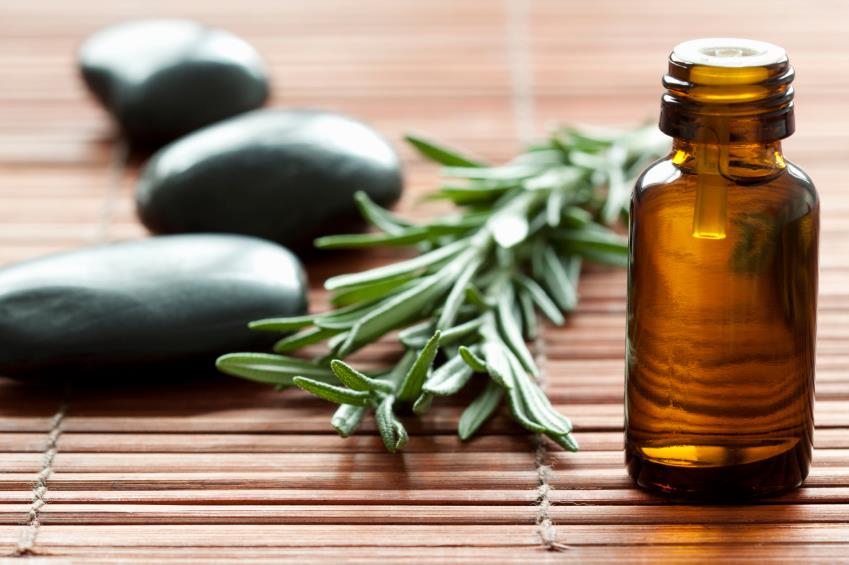What does holistic mean anyway? You might be surprised. Along with organic, natural, homeopathic, and alternative, it’s often misunderstood. People tend to assume many alternative health-related terms mean the same thing. They don’t. There’s no official legal term for holistic, as there is for organic, so people can define the term holistic however they like. However, most holistic practitioners have their own general definition:
“Holistic healing is a form of healing that addresses and considers all our human systems, including the physical body, as well as the emotional, mental and spiritual health of the whole person. Holistic healing is a matter of treating someone so they achieve optimal health and wellness on every level. That means how a person thinks, feels, and even worships affects their body’s overall balance and health, so each aspect must be considered in the healing process.”
Holistic medicine practitioners believe that when any part of the whole person is out of balance, not working properly, damaged or sick, the entire body is affected in some way. Left untreated disease attacks the body at its weakest point—thus, stress may show up in the low back, or as headaches, or fatigue, or an upset stomach, depending on the person. Whereas traditional or allopathic practitioners will tend to treat the symptom (a headache, upset stomach, pain), holistic practitioners look for the root cause or imbalance.
Because holistic practitioners believe when there is a physical, emotional, or spiritual imbalance in their lives, a person’s overall health is impacted, they examine every system, not just the physical.
What do Holistic Practitioners Believe?
Holistic practitioners believe:
- Health is a matter of addressing all aspects of a person’s life using a variety of healthcare practices, approaches, and patient lifestyle.
- The mental, emotional, and spiritual aspects of a person’s life are just as critical as the physical aspects.
- All people have innate healing powers and can be their own doctors.
- The patient is a person, not a disease to be attacked or controlled.
- Healing takes a team approach involving the patient, their family members or support system and their doctor.
- Treatment involves finding, understanding, and fixing the cause of the condition, not just alleviating the symptoms.
- Using western or allopathic approaches to healing when needed or appropriate, such as surgery or medication.

What do Holistic Practitioners Do?
Depending on what kind of holistic practitioner you’re seeing, each professional will use one or more approaches to healing. These approaches may include, but aren’t limited to:
- Patient education on lifestyle changes and self-care
- Diet
- Exercise
- Psychotherapy
- Spiritual and or relationship counseling
- Acupuncture
- Massage
- Craniosacral Therapy
- Essential Oil treatment
- Healing Touch
- Chiropractic care
- Homeopathy
- Naturopathy
- Physical therapy
- Zero Balancing
- Energy work
- Prayer
- Yoga
- Tai Chi
- Meditation
- Mindfulness
- Fasting
No two people are the same, and treatments that work for one person with back pain may not work for another.
The late Louise Hay was a holistic practitioner who helped introduce millions of people to the belief that, as she said, “Illness however mild or severe is an indicator of your emotional state, caused by your thoughts and focus.” Learning to see your body as an interdependent system—where an imbalance in your gut bacteria due to stress, a round of antibiotics, or eating too much sugar, for instance, can make you depressed, achy, or even diabetic, will revolutionize the way you take care of yourself.
Allopathic Medicine
Traditional, or allopathic medicine, tends to treat people as a collection of independent systems. For instance, if you have a temperature, they may check for infection, treat the infection and lower the temperature – treating the symptoms rather than the root cause. Allopathic medicine, according to Webster’s Dictionary, “Is a system of medicine that aims to combat disease by using remedies (such as drugs or surgery) which produce effects that are different from or incompatible with those of the disease being treated.”
For instance, if a person suffering from low back pain goes to an allopathic doctor they will most likely be asked about recent injuries, lifestyle, accidents etc., then given x-rays, an MRI, or other imaging tests to determine if there is a physical reason for the pain. If they don’t find a slipped or pinched disk, or physical reason for the pain they may prescribe pain medication, muscle relaxers, and physical therapy.
A holistic doctor or practitioner would take a complete history of the patient as well, but their questions would include any new stress in the person’s life, change in diet, exercise, mental health, depression etc.

A Healthy, Holistic Lifestyle
Our bodies were designed to heal themselves. In fact, all creatures, even fish, have been shown to be self-healers if they are exposed to, or treated with holistic methods. Science has shown that inflammation is the common link between such common and debilitating conditions as Alzheimer’s, heart disease, cancer, Crohn’s disease, Parkinson’s, high blood pressure, high cholesterol, arthritis and more. Other medical studies have shown that inflammation is the core cause of all disease and that when inflammation is treated holistically, people recover, improve, or reverse their disease states. [1]
That’s not to say all Inflammation is bad. It’s not. In fact, inflammation is the body’s proper and appropriate response to infection and to damaged cells, viruses, bacteria, etc. Inflammation acts to remove these harmful or foreign invaders and heal itself. In this way, inflammation is good. But there are times when inflammation can be bad.
There are two different types of inflammation, acute, and chronic. Acute inflammation starts quickly and generally disappears in a few days. This is generally a good kind of inflammation as it shows the body is doing its job properly. However, chronic inflammation can last for months or years. Chronic inflammation is a result of the body’s failure to eliminate the cause of infection or damage, or as a response to a repeated exposure to the damaging agent—like sugar, fungus, bacteria or toxins in a person’s food or the environment. A poor diet, stress, minor food allergies, a sedentary lifestyle and more can contribute to chronic inflammation.
How to live a holistic lifestyle
Living a holistic lifestyle may seem intimidating, expensive, or complex, but it’s not. A healthy, holistic lifestyle simply involves eating a proper diet, getting enough exercise, reducing bad stresses, and taking care of all parts of the self—mental, emotional, physical and spiritual. What that means will vary from person-to-person. But, the foundation is similar:
-
Eat healthy
Eating healthy means eliminating foods that are commercially processed, high in carbohydrates, salt, trans-fats, and lacking natural nutrients. Processed foods (junk foods) often cause a person to be slower in mind, body, and soul because the foods natural nutrients have been processed out. Processed foods include pretty much anything that can be considered either “convenience foods,” or “fast foods.”
-
Exercise
A holistic lifestyle includes at least 30-to-60 minutes of exercise a day. This can be walking, running, yoga, tai chi, biking, swimming, working out at the gym, whatever gets you moving. Exercise doesn’t have to be the traditional running and weights. It can be a sport, or other activity—like mowing the lawn, actively playing with your kids, rowing, sailing, anything that gets your heart rate up for a sustained period of time, and gets your muscles engaged.
-
Work/Life Balance
Healthy people have a healthy work/life balance. That means they spend a balanced amount of time between work and their family, friends or home life. When the only thing in your life is work, you’re probably out of balance, no matter how much you love what you do.
-
Spiritual and Emotional Health
“Spirituality” may be a turnoff to many people as they believe it means they must believe in a God or other divine deity. It can mean finding peace or solace in a formal religion or a relationship with a higher power, but it can also mean interaction with the supernatural—as in a relationship with nature. Spirituality is generally considered to be a person’s search for meaning and purpose, as an individual, or as a human being. It’s a process that causes us to strive for a state of harmony with ourself and others while working to balance our inner needs with the rest of the world’s needs.
-
Social Connections
Our social life matters. There is a connection between every individual and their environment as well as other people and their environment. Living a holistic lifestyle isn’t simply thinking your own needs while ignoring others. A holistic approach to living must include interactions with the environment around you, as well as your focus on a social life, your relationships with and the needs of other people in your life.
-
Sleep and Rest
We all have only 24 hours in a day. Some of us manage that time better than others. Most of us wish we had more hours in the day. Regardless, at least 7-9 hours of that day, depending on your body and health, should be spend sleeping—getting the rest needed for your body to function at its peak.
[1] https://bodyecology.com/articles/inflammation_cause_of_disease_how_to_prevent.php
